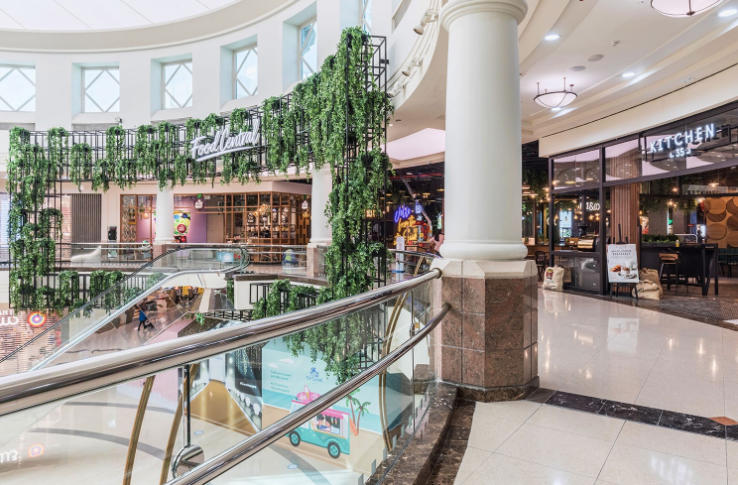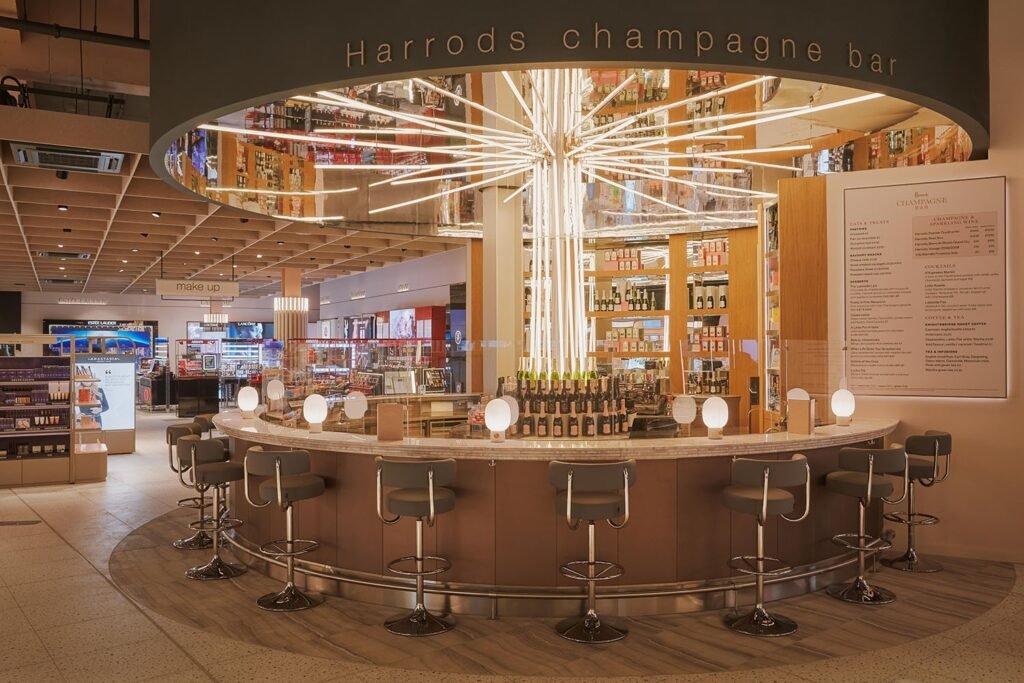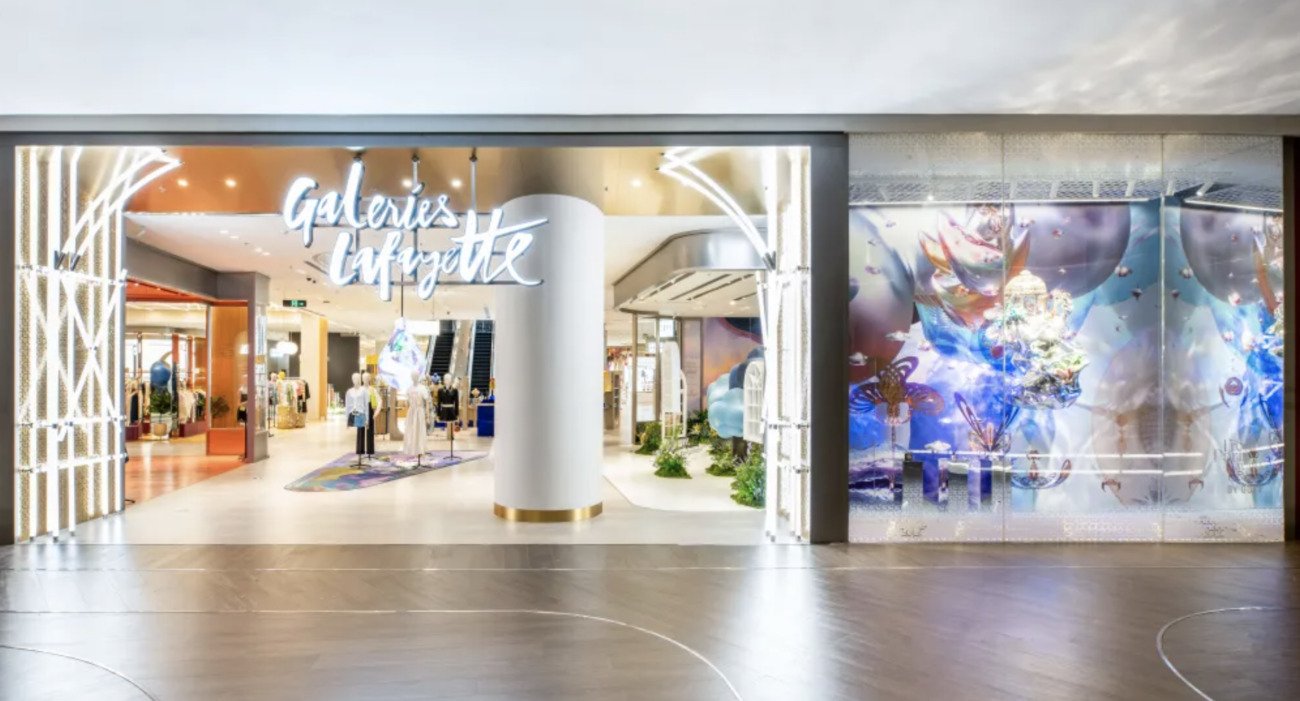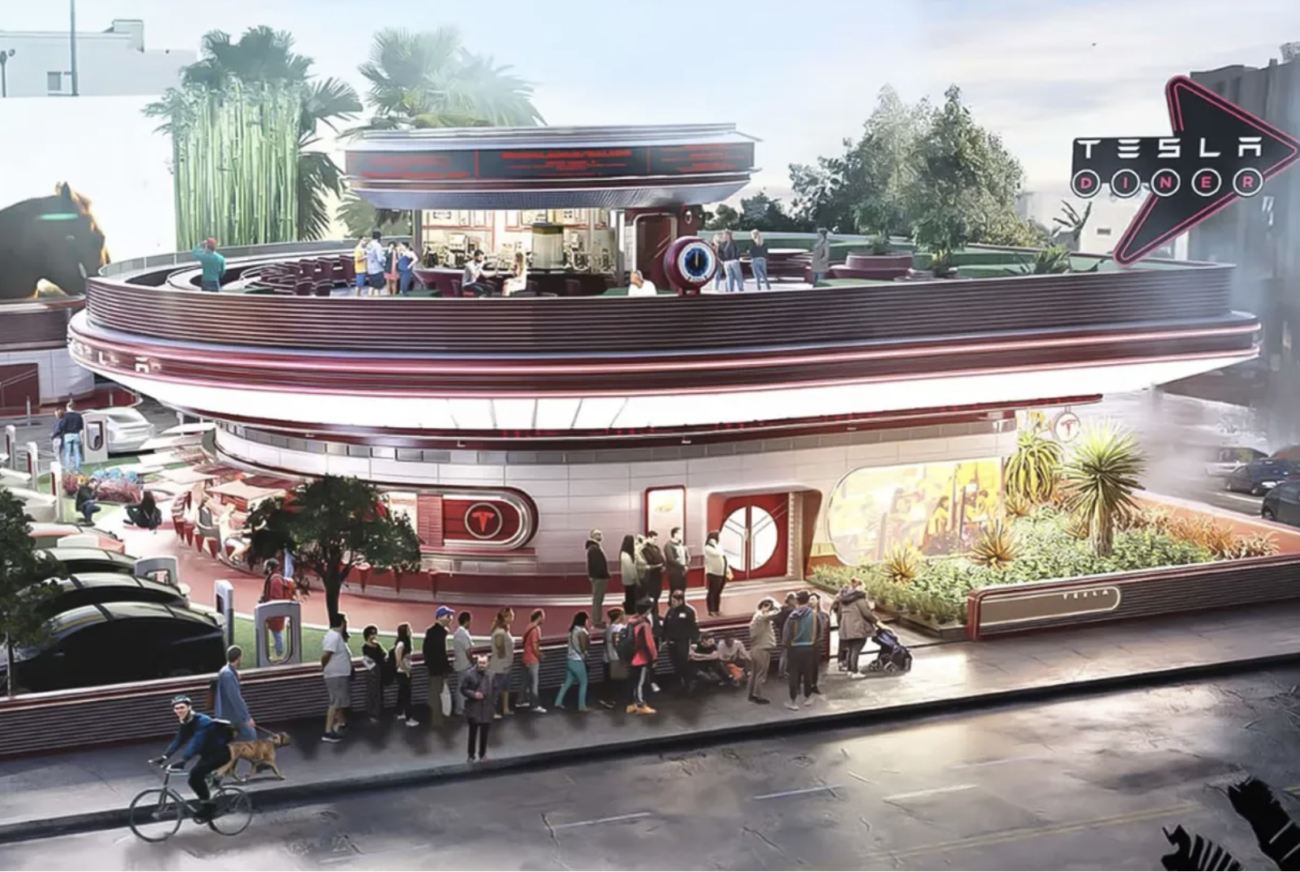Top 10 Retail Concept Stores From Around The Globe.
I read an interesting post today from Retail Futurist Matthew Brown featuring his top 10 global stores of 2021. These included some great examples of innovation, accelerated trends and wonderful store theatre. ----- TRENDS STILL MATTER! 2020 is the

I read an interesting post today from Retail Futurist Matthew Brown featuring his top 10 global stores of 2021. These included some great examples of innovation, accelerated trends and wonderful store theatre.
—–
TRENDS STILL MATTER! 2020 is the year that the Retail Apocalypse finally happened. As we head into 2021, retail is still confronting a global crisis and many businesses are unlikely to survive. And yet the next few years will also see an exciting evolution of retail. The pandemic hasn’t put an end to innovation, instead it is accelerating existing trends, speeding up the inexorable rise of online, but also cementing the importance of local, ethical and responsive retail.
Here is a round up of my ten favourite new concepts from around the world from 2020. Featuring amazing innovation in every sector, it points to a vibrant and creative future for retail.
In the next few years we can expect to see many more exciting pop ups and sculpted new lifestyle community destinations, buzzing with the events and hospitality we have all missed so much. Direct to consumer brands will increasingly use retail as a tactile way of introducing customers to their brands. At the same time, innovative physical retailers will experiment with new mission-driven ways to combine the analogue and digital to create seamless brand experiences; with gamified loyalty, more attentive service and personalised products. Powered by technology, but delivered by humans, this will give them an edge over online-only retail. At the same time, store design and creative visual merchandising will continue to be vital tools that successful retailers, big and small, will use to surprise and delight.
10. Food Central, City Centre Deira, Dubai
The covid crisis may have precipitated the final collapse of Debenhams, however its failure is really an acceleration of the long-term, existential crisis at the heart of the entire global department store sector. Nevertheless, its collapse leaves gaping holes in high streets and malls across the UK and beyond. The big question, of course, is what to do with all the space?
Majid Al Futtaim; the mall operators behind the innovative Mall of the Emirates, have turned the empty Debenhams unit at City Centre Deira into a unique foodcourt featuring sustainability, street food and retail theatre. This space is the anchor for a major redevelopment of the mall.
Food Central is its first ‘culinary experience destination’ in the UAE and its all about authentic, fresh dining from small, local operators. With gorgeous biophilic design, our favourite feature is the live beehive where bees make honey that is used by the food stands.
9. H Beauty by Harrods, Intu Lakeside, UK
Whilst times are undoubtedly tough in the department store sector, luxury name Harrods has actually used the crisis as a time to expand the brand and develop new store formats.
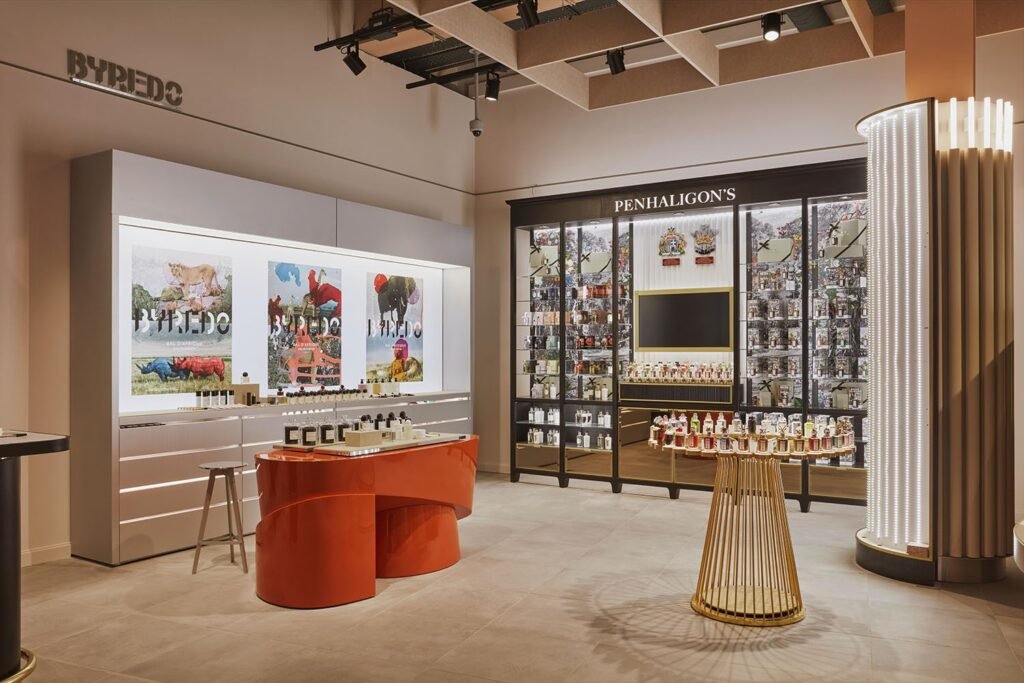
Taking the old Debenhams unit at Westfield London, they opened a new discount fashion format, called Harrods Outlet in July 2020, followed by this glamorous new standalone Beauty concept called H Beauty, at Intu Lakeside in September 2020.
A bold move, in a bold location, Harrods plans to roll out a second store in Milton Keynes in Spring 2021.
At 23,000 sq ft, this new beauty hall concept is no standard white box. Designed by luxury specialists Virgile & Partners, it offers 90 brands across makeup skincare and fragrance, with instore masterclasses and treatment zones. The offer is also available online. Our favourite feature is the champagne bar that sits at the heart of the space.
8. House of Rituals, Amsterdam
Rituals proves the power of flagship experiences with its gorgeous new ‘House of Rituals’, which opened in its home town of Amsterdam to celebrate the brand’s 20th anniversary. At 1,900m² it is Rituals’ largest store worldwide.
In keeping with the brand’s ‘Art of Soulful living’ philosophy, House of Rituals is designed as an escape from the hectic city life, and a holistic haven for the mind, body and soul.
It features a number of firsts for the brand, including exclusive new co-created products, a new homewares collection, as well various opportunities to personalise items. This is in addition to an Arabian-Asian inspired restaurant called Routhi.
Due to COVID-19, the four storey store will have a phased opening, the ground and first floor featuring Ritual’s retail and restaurant offer have opened first. The Body Spa and Mind Spa will open in the summer of 2021, offering pampering, mediation and community events.
7. Zongshuge Books, China
Zhongshuge is now the most exciting book retailer on the planet. Its latest stores in Beijing, Dujiangyan, Guangzhou & Ningbo confirm that the bookstore is not only alive, but a place of wonder, surprise and delight, where design and creativity are vital tools.
Zongshuge taps into Chinese literary culture by creating unique designs for each store, based on local history and architecture. Their strategy actively avoids cookie cutter roll outs.
X+Living’s amazing design transports visitors to somewhere magical. Zongshuge stores offer community spaces and cafés and feature lots of reading nooks. There is a strong focus on special spaces for children.
While there are similarities in the design approach of the Zhongshuge stores, each has distinct theme, that makes it unique to the location, with each one setting visitors on a voyage of discovery. This is true destination retail.
6. H&M Looop, Stockholm
Sustainability continues to expand into the mainstream, as innovative brands find new ways to communicate solutions.
Looop by H&M is the world’s first in-store recycling system, turning old garments into new ones. In just eight steps, Looop shreds your old garment and knits a new one from the old fibres. No water, no dye.
This theatrical piece of sustainable manufacturing has been installed into the basement of H&M’s Drottninggatan store in Stockholm.
The technology behind Looop has been developed by The Hong Kong Research Institute of Textiles and Apparel (HKRITA) in collaboration with the non-profit H&M Foundation.
For 100 Swedish kronor (€10), members of H&M’s loyalty club can use the garment recycling service to transform a pre-loved item into something new. For non-members, the fee is 150 Swedish kronor (€15). A nice member benefit.
5. Asda Sustainability Store, Leeds, UK
UK value grocer ASDA’s sustainable concept in Middleton is designed to help shoppers reduce, reuse and recycle. Asda estimates its initiatives will save one million pieces of plastic per year.
‘Greener at Asda Price’ is a new national price promise that loose and unwrapped will not cost more than wrapped equivalents.
Their fashion offer includes sustainable lines from George, as well as a selection of pre-loved clothing and a charity pop-up in collaboration with The Salvation Arm.
Asda has partnered with Unilever, Kelloggs and other suppliers to test out new ‘unwrapped’ concepts. The store features a large scale ‘Refill Zone’ that offers more than 30 household staples including dry goods, detergents and beauty products. Asda will use this site to test and learn which elements they will roll out to other stores in 2021.
4. Box by Posti, Helsinki
As online retail becomes a vital part of our everyday lives, so developing new solutions to solve the pain points of delivery, storage and returns are going become more important to us all.
Finland’s state owned postal service Posti, has opened a new type of high street click and collect concept called Box, in the heart of Helsinki. Designed by Fyra and with strategy from Motley, Box by Posti is where e-commerce meets the physical space.
It’s the missing link between customers’ home and online stores. In addition to parcel collection, there are dedicated spaces for customers to unpack goods, fitting rooms to try on clothing, facilities to repackage returns and even recycle packaging.
The ‘Spotlight’ area showcases up and coming DTC brands and gives them a space to sell their products in a physical store. Who said Post offices have to be boring?
3. Kit Kat Chocolatory, Sydney
FMCGs such as Nestle are continuing to invest in innovative retail concepts, to bring their brands direct to the consumer with exciting, sensory and personalised experiences.
Kit Kat has opened its first permanent Chocolatory in Sydney; an innovation incubator for future stores and product testing for new flavour releases.
The ‘Create your Break’ concept is a play on Kit Kat’s famous ‘Have a Break’ tagline. Customers can design their very own eight finger Kit Kat, made fresh while you wait, with up to 30,000 possible flavour combinations, or they can dine in-store using the sushi style dessert-train.
The concept centres around the theatre and craftsmanship of Kit Kat. By including hospitality dining it makes the experience longer and richer. Designed by Sydney based McCartney Design, the Chocolatory has been so popular that Kit Kat has even had to introduce a timed ticketing system for entry.
2. Nike House of Innovation, Paris
Nike is reaping the rewards of the ‘New Retail’ strategy it pioneered five years ago. Alongside streamlining its wholesale accounts, Nike is also investing in local, community stores alongside innovative flagship experiences. Everything is powered by the digital ecosystem that Nike has carefully sculpted.
Summer of 2020 saw the opening of its third House of Innovation, on the historic Champ Élysées in Paris. This 2,200m² flagship combines hero merchandising with immersive, digitally powered services.
The Nike app is central to enriching the experience, allowing touch free browsing and purchasing, AI fitting, personalisation and expert services that are unlocked when you become a member.
Powered entirely by clean energy and using sustainable materials in its design, the brand highlights its ‘Move to Zero’ initiative throughout the store, sending a positive message the growing number of ‘conscious consumers’.
1. Burberry Social Store, Shenzen, China
Burberry are trailblazers in digital retail, continuing to innovate even in the middle of a global crisis. Burberry has teamed up with technology giant Tencent to launch a new concept in Shenzhen, the tech capital of China.
Dubbed Burberry Social, customers use a WeChat mini program as a gamified shopping experience to book in-store tours, appointments, reserve fitting rooms and book a table at the store’s café. All products are labelled with QR codes, allowing customers to access in-depth product information via their own devices.
Customers are given a digital ‘egg’ when they start, which hatches into a unique animal avatar. This evolves and changes as you explore the store and allows you to unlock experiences, such as the Trench room, which you get a special tour when you reach ‘Panda level.’
This gamified approach to the instore experience is a clever way to reinvent loyalty in the digital age.
Via Linkedin
 English
English


